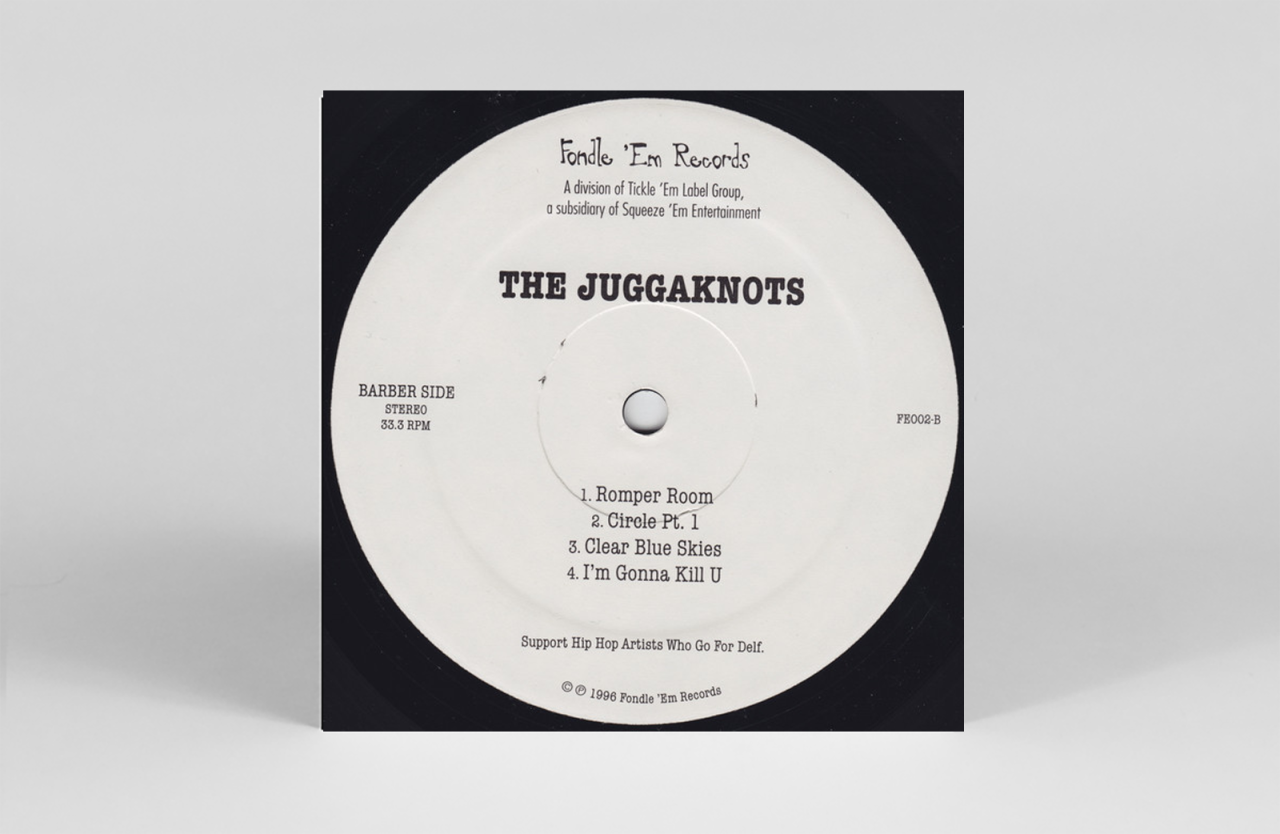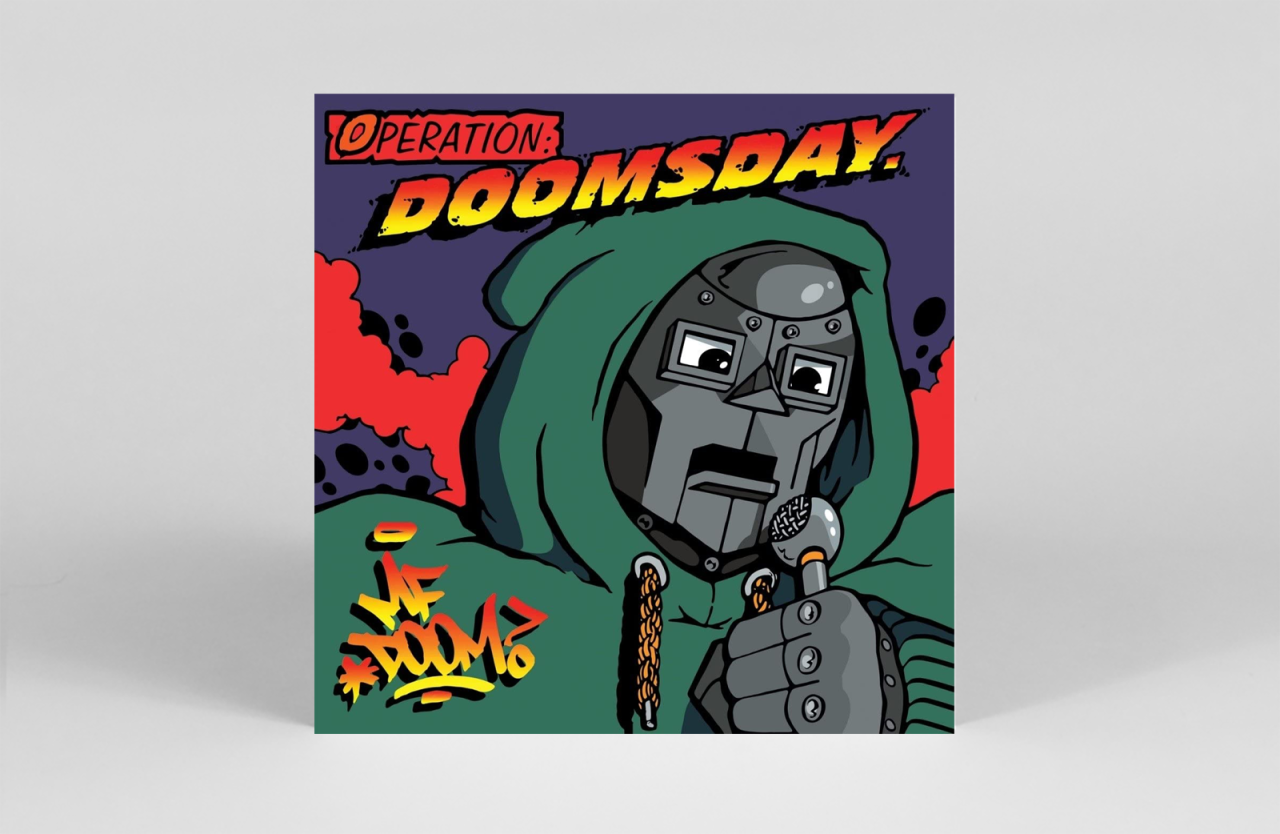
The Records That Made Me: billy woods
With The Records That Made Me, VF uncovers the vinyl releases that have influenced and shaped our favourite musicians, DJs and artists.
billy woods, rapper and founder of Backwoodz Studioz, has had a remarkable few years. Since 2003, he has been a prominent figure in the New York underground hip-hop scene and has established himself as one of the most consistent and hard-working names in the industry. Recently, he has delivered a string of excellent releases, including collaborations with Kenny Segal and VF artist Moor Mother.
woods’ latest project, Maps, marks his second collaborative album with producer Kenny Segal and is a standout release of the year so far. VF’s Kelly Doherty caught up with woods to delve into the records that have played a significant role in shaping and inspiring his music.
Read more: Claire Rousay on Pedro The Lion, Cecil Taylor, Olivia Block and more
billy woods’ journey with vinyl began tentatively during a youth dominated by cassettes and CDs. “When I was a teen getting into music on my own, vinyl was kind of out,” he explains. During time spent in Zimbabwe as a child, woods had access to records and a turntable, but upon returning to the US, he no longer had a working turntable at home.
Later in college, he was reintroduced to vinyl. “There were kids who’d get a turntable and steal their parents’ records. There were these older kids, and I used to go smoke weed in their room and they had reggae, roots and dub records”.
He recalls meeting photographer and collaborator Alexander Richter thanks to mutual love of a record. “He was listening to Jeru The Damaja’s “Come Clean” single on vinyl with his window open on campus,” woods says. Exchanges like this with friends shaped many of his early vinyl experiences. “I don’t think there’s a single record on this list that I had first”.
woods’ record selections predominantly reflect a transformative era in underground hip-hop which influenced his artistic growth, ranging from the initial inspiration of The Juggaknots to the euphoria of hearing his friend in Cannibal Ox on vinyl. Even to this day, he continues to derive joy from the vinyl releases of his own music. “Before you even hear your record, it’s amazing just holding it in your hands and being like ‘wow’,” he enthuses.
“I had the experience the other day with both versions of the Maps vinyl. I had childlike energy busting the boxes open, taking it out and seeing this thing that you and everybody involved put so much time and energy into and it’s now a fully realised package”.
Read on to discover the records that made billy woods.

The Juggaknots
The Juggaknots
(Fondle ‘Em Records)
I first encountered this record in college when I met this kid from New York, who was into underground hip hop and was one of the first people I knew who really had rap vinyl. I’d never heard of them and when it was played for me, I was just blown away. I had some exposure to the underground hip-hop scene after coming to New York, but I wasn’t plugged in at all and they didn’t have a scene like that where I was coming from.
The group was like a family thing, with Breeze as the main rapper, and his brother and sister were also involved. The style, ability to craft conceptual songs, and production were incredible. I hadn’t heard something like it before. The record’s hook was the song “Clear Blue Skies,” which was about racism but told from the perspective of a white kid’s conversation with his father about the fact that he’s dating a Black girl. I was like, “Wait the rapper is Black?”. It was conceptually so daring and it’s crazy to think how young these guys were when they made this record.
This was some of my earliest exposure to the New York scene. Some might say it was a bedrock of the scene that would eventually grow into Rawkus, Definite Jux, and other things. It was passed around as a little-known record you could only get on vinyl. I can’t remember if it even had artwork or was just a white label. I want to say it was a white label, but that could just be me mythologising.

Bobby Digital (RZA)
Digital Bullet
(Koch Records)
When I moved back to New York City in 2001 to make a real go at doing music, I would hang out with the person who would become my closest early musical collaborator, Bond. He lived with two other friends of mine and one was this kid Dimitri who would collect records to some extent.
This was the era when everyone didn’t have home recording systems, so I hadn’t done a lot of actual recording. I would go over to theirs almost every day on some boot camp shift and just write, listen to beats, write, smoke weed, write and record little demo things to cassette tapes. It was the first time I was really hearing my own voice.
Around that time, someone had the single “Must Be Bobby” on vinyl. It also had the instrumental version, and it was really dope. I just would put that on and write to it–putting in my 10,000 hours or whatever. Eventually, that led to me copping the album.
It’s an underrated entry in the Wu-Tang discography, both solo or group. It’s just a really well-crafted album, beginning to end. The socio-political ideas on the album really reverberated, especially given the time. I was over at Bond’s on the morning of 9/11. We were in Greenpoint, right on the water, and we were making music before it and kept making music after it. 9/11 was very much in the foreground of everything in New York City–you’d get up in the morning and there are giant plumes of black smoke.
I found it interesting not only sonically and stylistically, but socio-politically. The record sticks in my mind as a memory of when I was just trying to work on my art.

MF DOOM
Operation: Doomsday
(Fondle ‘Em Records)
The person who had found “Clear Blue Skies” in school was the same person who played me MF DOOM. I knew Zev Love X and KMD’s music and was probably 13 when “Peach Fuzz” came out. Years later, I’m in school and the dude has a couple of singles on Fondle ‘Em [Records]. The first one that hit me was “Hey!” and the B-side of that maybe was “Doomsday”. The lyrics and the vibe and approach were just totally different. In that era, there were many people just doing shit, but it was different from the rest of the underground scene.
I heard those records, and they stuck in my mind, but then I left school. I didn’t have the records, but I would make little mixtapes on cassette from records. I had “Hey!” and “Doomsday” and a few other songs on a mixtape. Those original versions ended up being put together for Operation: Doomsday, which came out on Fondle ‘Em, vinyl only. By that point, I had left New York, gone back to DC, and was getting into a bunch of other shit. Then I saw something in the Washington City Paper about MF DOOM putting out an album. I ended up getting it on CD and was just blown away. The version that I actually ended up buying was a Sub Verse version, which was the first to be released on CD. It had been re-recorded. It’s cleaner, with some major differences in delivery and lyrics and I think it had an extra song or two.
I still have a strong place in my heart for the original one. Although the Sub Verse one is what I think of when I think about the album, my heart is with the original Operation: Doomsday record. It was groundbreaking. It just upended how I thought about rap, and that was when I was pretty set that I was going to do music.
Man, there are so many things that he just did differently–from coming up with the concept to how he balanced the dark comedy aspect and bitterness underneath the humour. The Black American traditions that he called back to at different times, as well as the generational similarities. Even though he’s older than me, all the things that I recognise–the pop culture and TV references. Operation: Doomsday was captivating, brilliant, poignant, wholly and completely original. It changed how I thought about my work and changed how I wrote.
Later, I found out he was half Zimbabwean and half Caribbean, which is my own background. That was so sick and it all made sense.

Kool Keith
Matthew
(Funky Ass Records)
This was another that I heard at Bond’s crib. Man, Matthew is crazy. It’s the rawest, in all senses of the word, Kool Keith album. I think it’s mostly self-produced, and he’s just going off and ranting with an unhinged rawness. It was great to listen to, and it was like alright, so you can just write and make your own rules.
There’s a song called “Lived In The Projects” where he’s basically listing things in between repeating the words “you never lived in the projects”. It made me realise you can just you can do what you want to do. You can break rules, you can cut loose, you can talk your shit. The production was just some raucous shit. It was funny, acerbic and ridiculous, but so in your face that it also had to be taken seriously.

Company Flow / Cannibal Ox
DPA
(Def Jux)
Although Company Flow’s Funcrusher Plus was a hugely formative album for me too, I’m going to say this release because we’re talking about vinyl.
I was really close friends with Vordul Mega and knew Cannibal Ox. At the same time, EL-P was a pioneering voice that had this legendary record that was never followed up truly, in my mind. With this EP, things went from Vordul being this kid I know that raps and is dope to him signed to Def Jux and introducing me to this other cat and saying we’re going to be Cannibal Ox.
It was a double vinyl split EP with the first Cannibal Ox songs on one part of the record – this was my homie and somebody who had mentored me in music, even though he’s younger than me. Suddenly, he’s on a record with a producer who’s already a legend to me. Hearing those tracks, I was like, “what the fuck?”. I had heard Vordul’s rhymes, but a lot of that was acappella in the apartment in Harlem or whatever. The record sounded crazy to me, just the actual sonic texture.
The other disc was Company Flow. That side of the record was cool too and had a song called “Simple” that starts with “the day my watch got stolen” and I’ll always remember it. It was the moment when someone I knew was really doing this. EL-P had started his own label. My good friend is involved and this music they’re making sounds crazy.
It bridged the era of underground hip hop I was first introduced to in 1996 when I heard “Clear Blue Skies”. Meeting Vordul and knowing someone who rapped and was an incredible prodigy – suddenly five years later it had all come together. It made it all real that I could try to do this.
billy woods and Kenny Segal’s Maps is out now.









